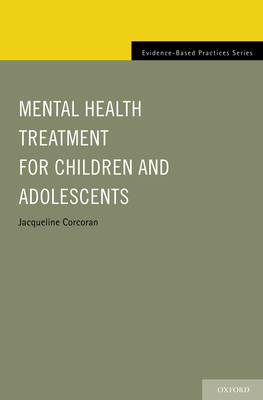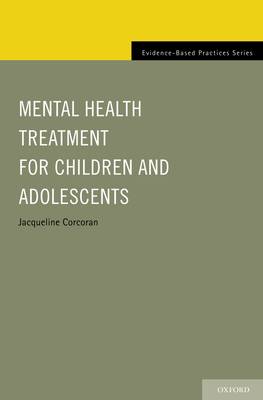
- Afhalen na 1 uur in een winkel met voorraad
- Gratis thuislevering in België vanaf € 30
- Ruim aanbod met 7 miljoen producten
- Afhalen na 1 uur in een winkel met voorraad
- Gratis thuislevering in België vanaf € 30
- Ruim aanbod met 7 miljoen producten
Zoeken
Omschrijving
Mental health problems disrupt the lives of many young people and their families, putting them at risk for instability as adults. This is particularly true for children from vulnerable populations, such as those in the child welfare or juvenile justice systems. With the prospect of potentially dire outcomes, it is essential that professionals be well equipped to understand and treat mental health disorders early and effectively. Mental Health Treatment for Children and Adolescents offers a sweeping synthesis of the research on treatment of DSM-defined mental disorders in youth, appraising the state of the available evidence and examining how evidence-based treatments address the biological, psychological, and social variables that contribute to the development of disorders and the potential for recovery. Each chapter focuses on a different diagnosis, covering ADHD, oppositional defiant disorder, conduct disorder, substance use disorders, depressive disorders, eating disorders, anxiety disorders, and post-traumatic stress disorder. Each one contains a critical review of the state of knowledge about a disorder, a summary of empirically supported psychosocial and pharmacological treatments, a case study, and a recommended research agenda. In addition, each is thoroughly grounded in a risk and resilience framework and focuses on the contextual factors that influence not only the development of a disorder but the implementation and adaptation of evidence-based practices in the real world. Mental Health Treatment for Children and Adolescents is a valuable resource for students, researchers, and clinicians both for its presentation of cutting-edge data and its emphasis on implications for social workers in training, practice, and research.
Specificaties
Betrokkenen
- Auteur(s):
- Uitgeverij:
Inhoud
- Aantal bladzijden:
- 256
- Taal:
- Engels
- Reeks:
Eigenschappen
- Productcode (EAN):
- 9780195375718
- Verschijningsdatum:
- 30/09/2010
- Uitvoering:
- Hardcover
- Formaat:
- Genaaid
- Afmetingen:
- 241 mm x 165 mm
- Gewicht:
- 504 g

Alleen bij Standaard Boekhandel
+ 184 punten op je klantenkaart van Standaard Boekhandel
Beoordelingen
We publiceren alleen reviews die voldoen aan de voorwaarden voor reviews. Bekijk onze voorwaarden voor reviews.











